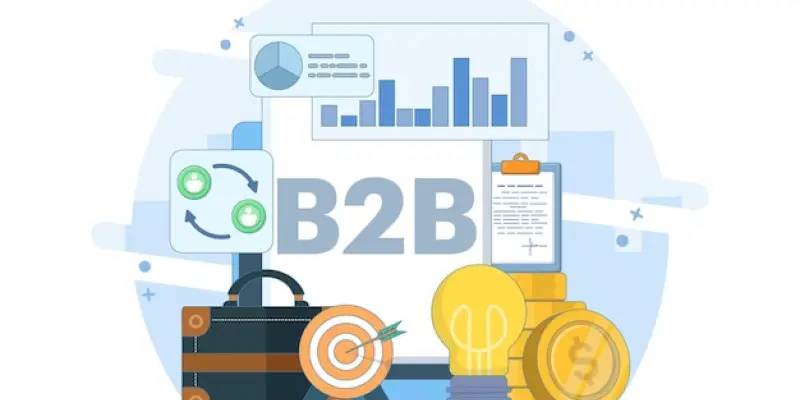Artificial Intelligence is becoming an integral part of B2B marketing, as marketers turn to technology for insights and efficiencies. Yet, this growing reliance raises a burning question: Is AI enhancing the creative process or stifling it? A recent statistic revealed that over 60% of B2B marketers have integrated AI into their strategies, highlighting the pressing relevance of this debate. As professionals across the industry ponder the implications of AI’s expanding role, opinions remain fiercely divided.
Navigating the AI Impact on B2B Marketing’s Creative Future
The conversation about AI in B2B marketing is more than intriguing; it signifies a crucial frontier for the industry’s evolution. As businesses increasingly integrate AI, many worry about the potential loss of the human touch vital to authentic brand connection and relationship-building. Understanding AI’s role in striking the right balance between technology integration and human creativity is essential, as it represents a shift that could redefine the marketing landscape.
The Dual Edge of AI: Empowerment vs. Restriction in Marketing
AI undeniably offers marketers tools that enhance creative strategies, particularly through personalization and data-driven insights. By leveraging AI, businesses develop targeted campaigns that precisely address specific customer needs, making their outreach more efficient and effective. On the flip side, skeptics argue that AI-generated content often lacks the emotional and human elements essential for meaningful engagement. Instances on platforms like LinkedIn illustrate how AI can result in similar and impersonal content, often failing to convey brand authenticity. This dual impact presents a significant challenge for marketers as they navigate the potential benefits and limitations of AI use.
Insights from the B2B Ignite Conference: Divergent Perspectives
At the B2B Ignite conference, industry leaders like Rhiannon Blackwell and Chris Wade provided valuable perspectives on AI’s role in marketing. Blackwell and Catherine Dutton advocated for AI’s strategic potential, suggesting that when appropriately integrated, it offers marketers unprecedented opportunities for innovation. Meanwhile, Wade, alongside Luca Di Giuseppe, highlighted risks associated with reducing human creativity and emotional resonance. In a twist, AI itself joined the debate, showcasing the technology’s potential to be both a challenger and participant in shaping its future landscape. The conference illuminated the multifaceted nature of AI’s impact on marketing, emphasizing the importance of continued dialogue and exploration.
Strategic Integration: Harmonizing AI and Human Creativity
To harness AI without compromising creativity or customer connection, marketers must adopt strategic approaches. Effective integration entails developing frameworks that ensure AI supports, rather than replaces, human ingenuity. Businesses could establish guidelines that define AI roles in augmenting rather than dictating creative processes. Regular evaluation of AI’s contributions ensures that technology complements human efforts, preserving marketing’s creative essence. Through thoughtful management, companies can strike a balance where AI amplifies their capacities while maintaining the industry’s inherently creative spirit.
Paving the Path Forward: The Future of AI in B2B Marketing
As the role of AI in marketing continues to evolve, businesses face the task of finding new strategies to maintain the delicate balance between technological advancement and creative integrity. Organizational leaders prioritize fostering open communication channels, promoting innovation, and actively seeking to understand AI’s potential for enriching marketing. Moving forward, the industry’s challenge shifts towards cultivating an environment where AI becomes a supportive force, empowering human marketers to explore new creative horizons. As AI’s role in B2B marketing continues to expand, it offers substantial potential for enhancing strategies, provided it is managed thoughtfully and ethically.

